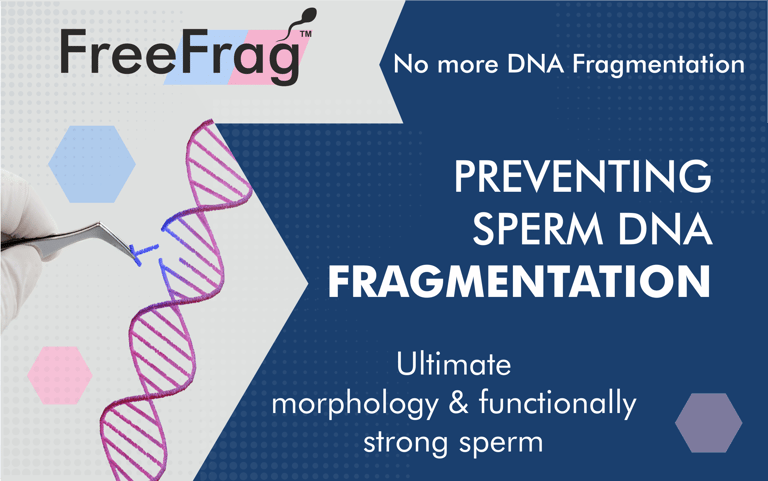FreeFrag - Preventing Sperm DNA Fragmentation
COMMUNITY


Preventing sperm DNA fragmentation, which refers to damage to the genetic material within sperm cells, is an important consideration for couples undergoing fertility treatment, including IVF. High levels of DNA fragmentation in sperm have been associated with reduced fertility and lower success rates in assisted reproductive techniques
Here are some strategies that can help reduce sperm DNA fragmentation:
Lifestyle modifications: Encourage the adoption of a healthy lifestyle, including regular exercise, a balanced diet rich in antioxidants (such as fruits, vegetables, and nuts), avoidance of smoking, excessive alcohol consumption, and recreational drugs. These lifestyle changes can help minimize oxidative stress, a common cause of DNA damage in sperm.
Antioxidant supplementation: Antioxidants like vitamins C and E, coenzyme Q10, zinc, selenium, and L-carnitine have been shown to reduce sperm DNA fragmentation by scavenging free radicals and protecting sperm from oxidative damage. However, it's important to consult with a healthcare provider before starting any supplements, as excessive doses may have adverse effects.
Avoidance of environmental toxins: Minimize exposure to environmental pollutants, pesticides, heavy metals, and radiation, which can contribute to sperm DNA damage. This includes wearing protective gear in hazardous work environments and avoiding prolonged exposure to heat (such as hot tubs or saunas) that can negatively impact sperm quality.
Treatment of underlying medical conditions: Address any underlying medical conditions such as infections, varicocele (enlarged veins in the scrotum), hormonal imbalances, or genetic disorders that may contribute to sperm DNA fragmentation.
Advanced sperm selection techniques: Some IVF clinics offer advanced sperm selection methods, such as intracytoplasmic morphologically selected sperm injection (IMSI), which allows for the selection of structurally normal sperm with minimal DNA damage for fertilization.
By implementing these strategies, couples can work towards optimizing sperm quality and reducing DNA fragmentation, ultimately improving their chances of successful conception through IVF or other fertility treatments. However, it's essential to consult with a fertility specialist to determine the most appropriate approach based on individual circumstances.
